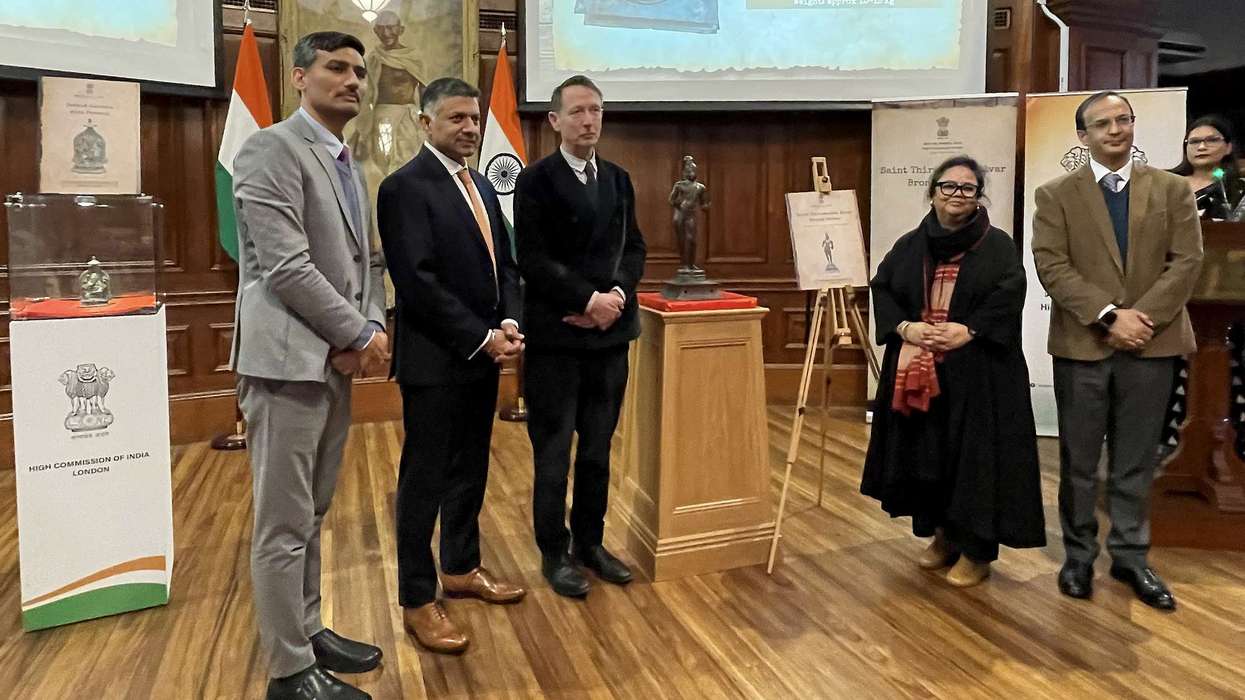A REPORT by the Trades Union Congress (TUC) has highlighted a significant increase in the number of black and ethnic minority workers taking on night shift roles in the UK over the last ten years.
The number of minority night workers doing night shifts has “skyrocketed” by 360,000 (71 percent) over the past ten years, while the number of white workers doing night shifts has declined, according to the report published on Saturday (26).
Currently, one in six minority workers regularly work in night shifts, compared to one in eleven white workers. Since 2014, night work has also become more common among other groups, including younger workers aged 16–24, with an increase of 37,500, and older workers aged 55 and over, with an increase of 178,200.
The report titled 'Health and safety impacts of night work' pointed out that night workers are exposed to considerable health and safety hazards due to the extended and frequent nature of night shifts. It added that the number of white workers consistently working night shifts has dropped by over 570,000, a decrease of 19 per cent.
Night workers are most commonly employed in sectors such as transport and storage, healthcare and social services, and accommodation and food service industries. Also, they are twice as likely to be on zero hours contracts, which allow employers to only pay staff when they need them, than the general population
The TUC report revealed that there is also a notable increase in night-time workers from minority backgrounds, reflecting an ethnic diversity trend in these roles. Additionally, the number of night shift workers born outside of the UK has surged by 33 per cent from 2012 to 2022, reaching two million.
In the UK, over a quarter of the workforce, approximately 8.7 million people, were engaged in night-time work as of 2022. While men make up the majority of night-time workers at 56 per cent, the number of women working night shifts has grown steadily over the past decade.
"Health concerns are a major issue for night shift workers, with studies indicating that shift work disrupts circadian rhythms, leading to heightened risks of cardiovascular disease, gastrointestinal disorders, and metabolic issues such as diabetes. Social misalignment and limited sleep are identified as pathways linking night work to these health conditions. Gender differences further complicate these impacts, with men and women facing unique health risks due to differing responses to shift schedules," said Sian Moore of Anglia Ruskin University and Ruth Ballardie of University of Greenwich, authors of the report.
“We all owe Britain’s night workers a huge debt for keeping the country running while the rest of us are asleep. They do vital work. But too many night workers are on insecure contracts that can often lead to exploitation, excessive fatigue and a breakdown of personal relationships," said Paul Nowak, TUC general secretary.
“And it is no coincidence that the burden of nightwork now disproportionally falls on black and ethnic minority workers. This is the result of persistent structural inequalities in our labour market."
He added, “The government’s landmark Employment Rights Bill will bring real benefits and protections for night workers – including a ban on exploitative zero-hours contracts and compensation for cancelled shifts.
“Further, the Bill will ensure that workers have a stronger voice in the workplace – which can include proper consultation of workers around shift patterns they are expected to take on.”
According to the report, employers and unions need to recognise the significant risks night work poses to workers’ physical and mental health, as well as to their family, social life, and relationships.
The report urged to include more flexibility, reduce long and irregular hours, and improve childcare access to minimise the negative impacts on health and family life. Management’s approach to roster flexibility has a significant role in easing these effects, but evidence from this study indicates limited implementation, the authors wrote.
"Night work preferences among employees are often influenced by economic pressures, limited day job options, and the high costs of childcare. For many, financial necessity is the primary motivator for night shifts, as the wages, though varied, often provide a premium essential for economic survival amidst rising living costs. However, these shifts come with significant psychosocial risks, such as increased work demands due to understaffing, lack of managerial support, and risks of harassment, especially for those working alone or in specific industries like theatre," the authors wrote.
"These conditions exacerbate health issues, including sleep deprivation and fatigue, which compound over time, especially for older workers who often struggle more with the demands of night shifts.
"Night shifts impact work-life balance, straining familial and social relationships, with some workers reporting relationship breakdowns due to long hours and the inability to spend quality time with family. Employers often fail to address these issues adequately, with minimal occupational health support and rigid shift schedules that ignore workers’ well-being."
The report pointed out that the current UK Health and Safety Executive guidelines place high priority on managing psychosocial risks; therefore, employers and unions should collaborate to conduct psychosocial risk assessments, addressing potential issues like excessive workload and overtime.
"Employers should also be mindful to avoid expanding night, shift, and weekend work requirements, as well as making changes to established shift patterns. Employers should be cautious about implementing 12-hour shift patterns, which may worsen fatigue, especially in safety-critical roles. For high-demand jobs, these shifts should be limited to two or three days, with no overtime," the report said.
"For workers over the age of 50, tolerance for shift work tends to decrease, and sleep-related issues become more common. Employers should accommodate older workers by allowing them to move to day shifts or reducing night work demands. Employers should reassess the value of night shift premiums, ensuring they fairly compensate for the health and social impacts of night work."
The report, which was based on the Labour Force Survey in the second quarter, said that night shift workers should have the right to time off for medical appointments, domestic responsibilities, and emergencies, and employers should ensure workers can take their due meal breaks. Additionally, companies should provide healthy, hot food options for night workers along with clean social spaces and quiet areas for breaks.
Moore, professor of work and employment at the university, said, “Scientific research shows that night work has significant impacts on workers’ physical and mental health. Our interviews with night workers show that they are sleep deprived and permanently fatigued, with insufficient time for recovery between shifts and recovery eating into workers’ own time.
“Women worked nights to enable them to take and collect children to and from school and in order to avoid childcare costs. There were reports of parents swapping children in car parks between their shifts. Yet nightwork has negative effects on relationships with partners and children and on social lives.
“Those on night shifts may be lone workers and thus face significant risk, including dealing with violence. Many night workers are not paid extra or sufficiently to compensate them for these risks, which have particular impacts as workers get older.”





